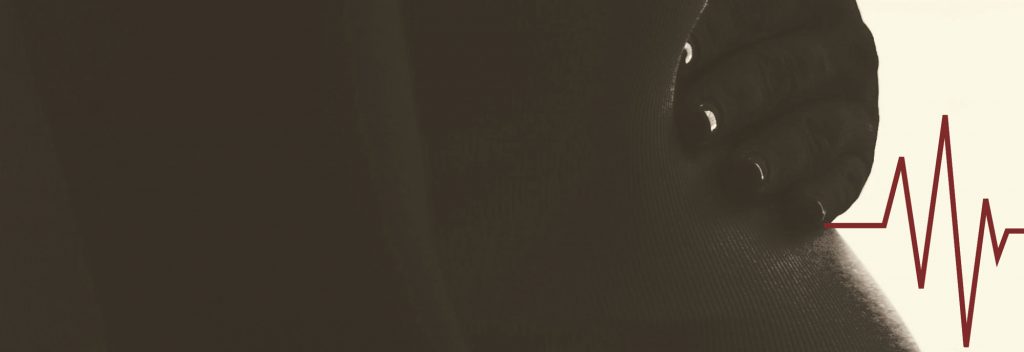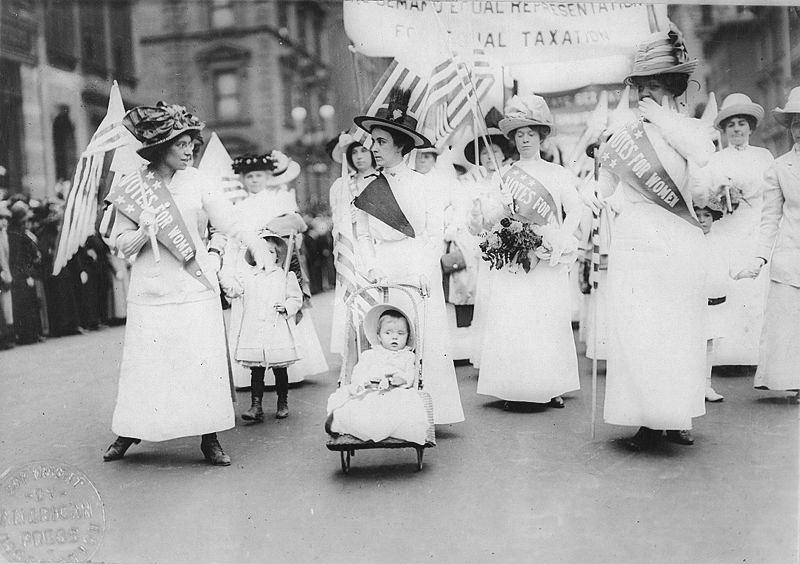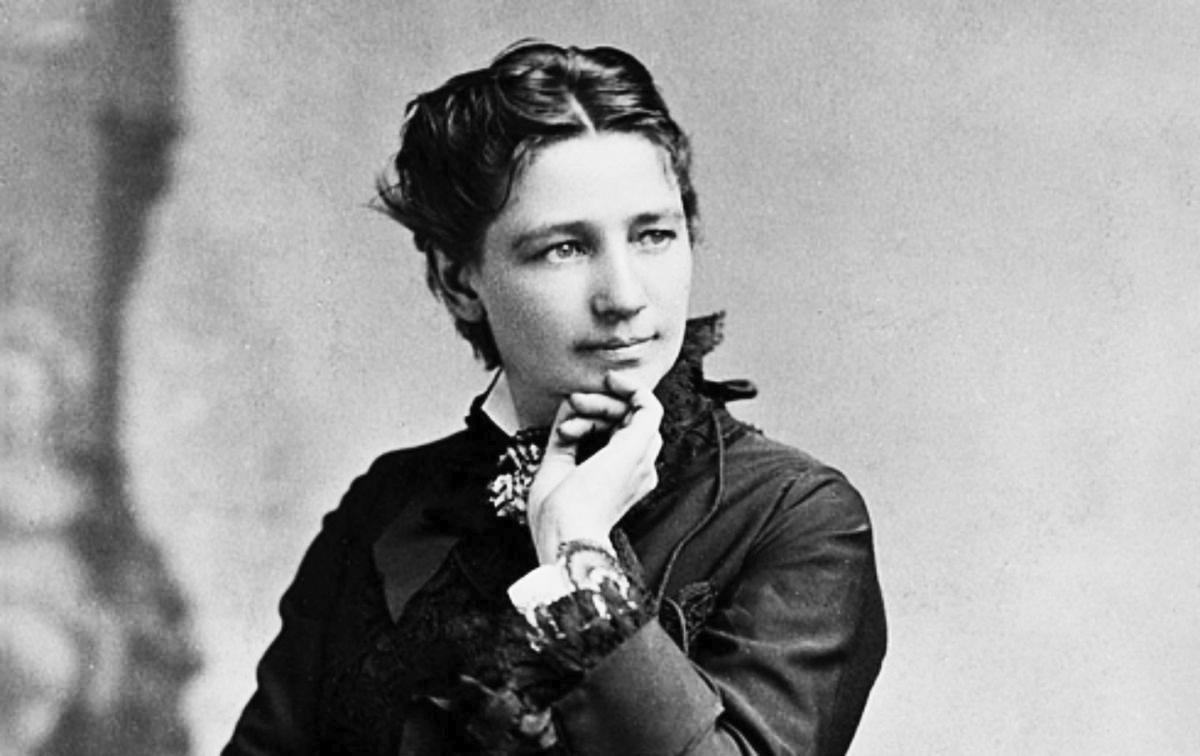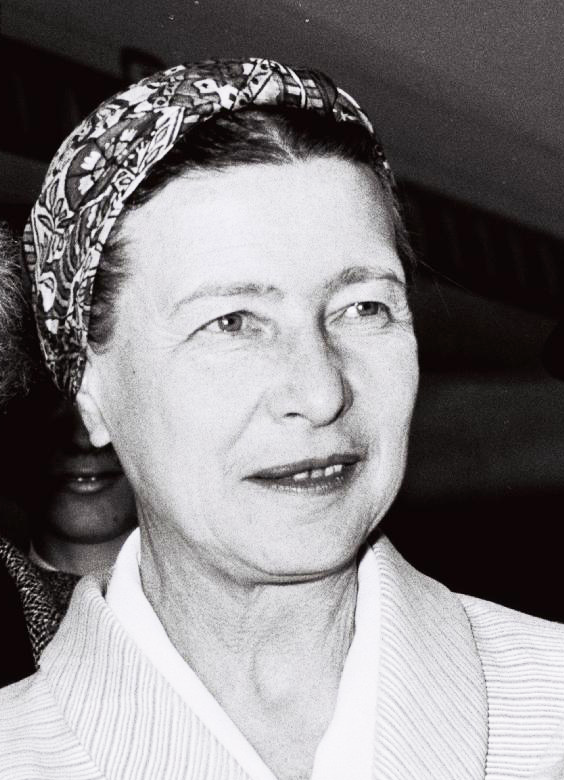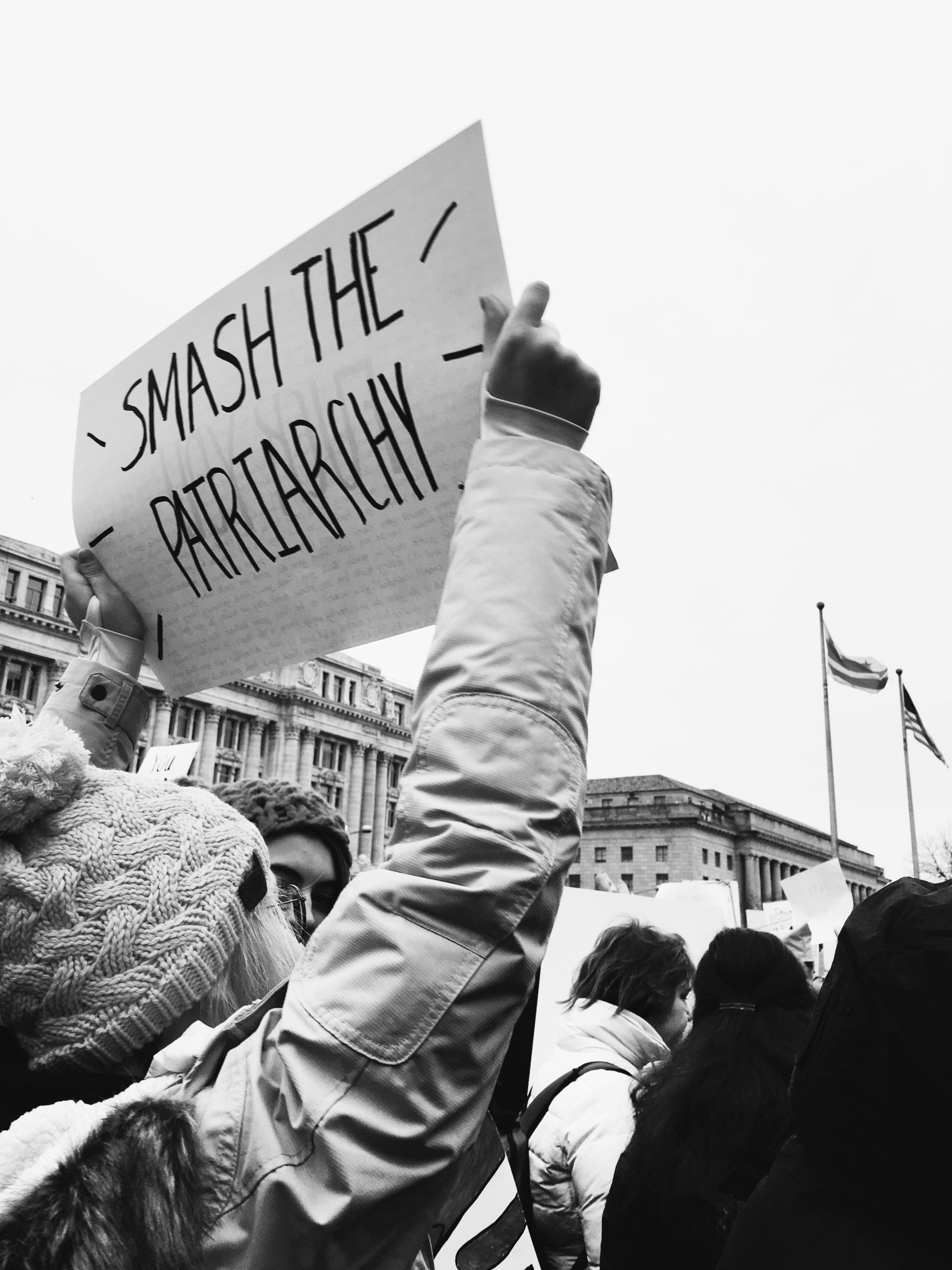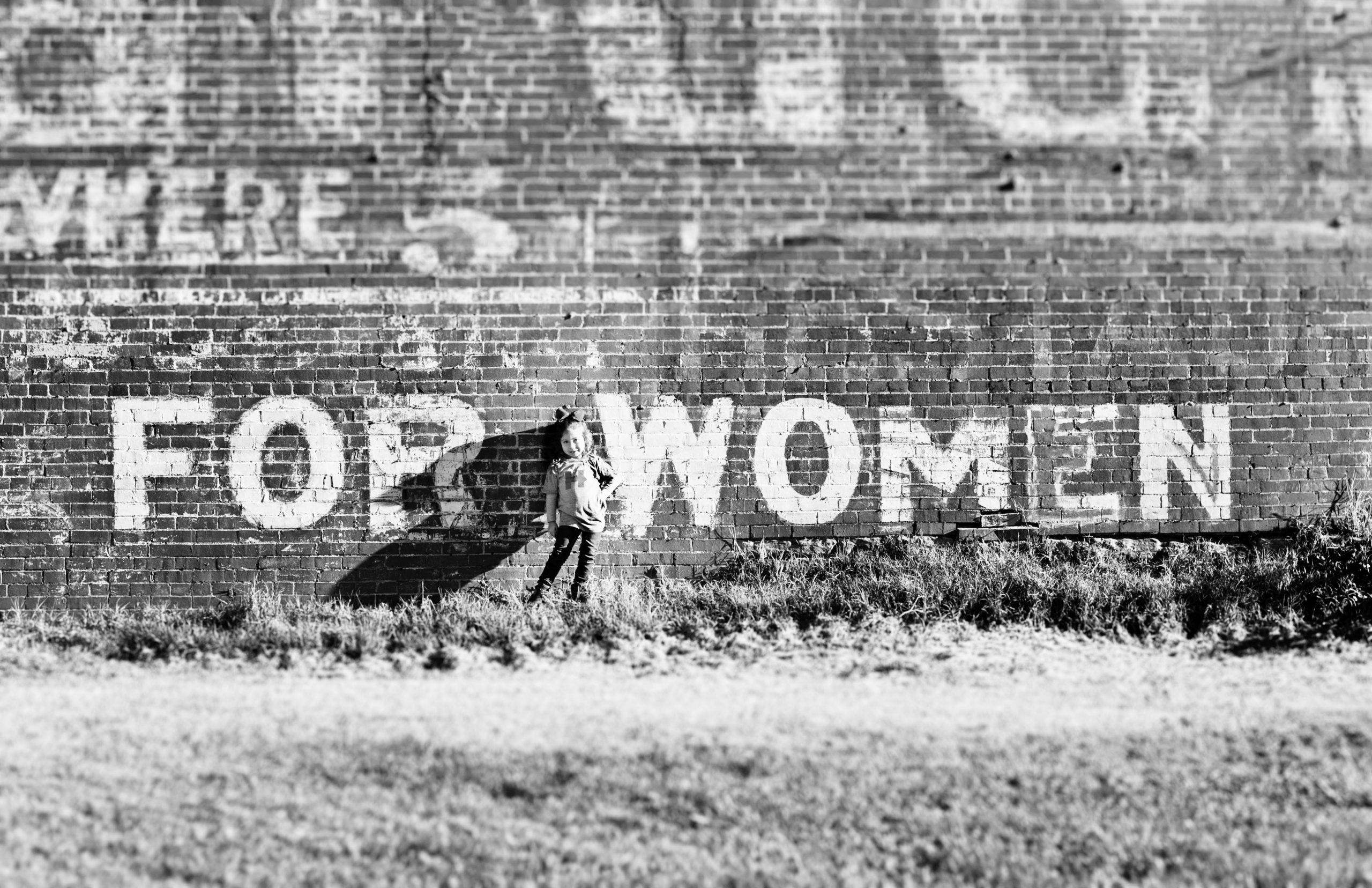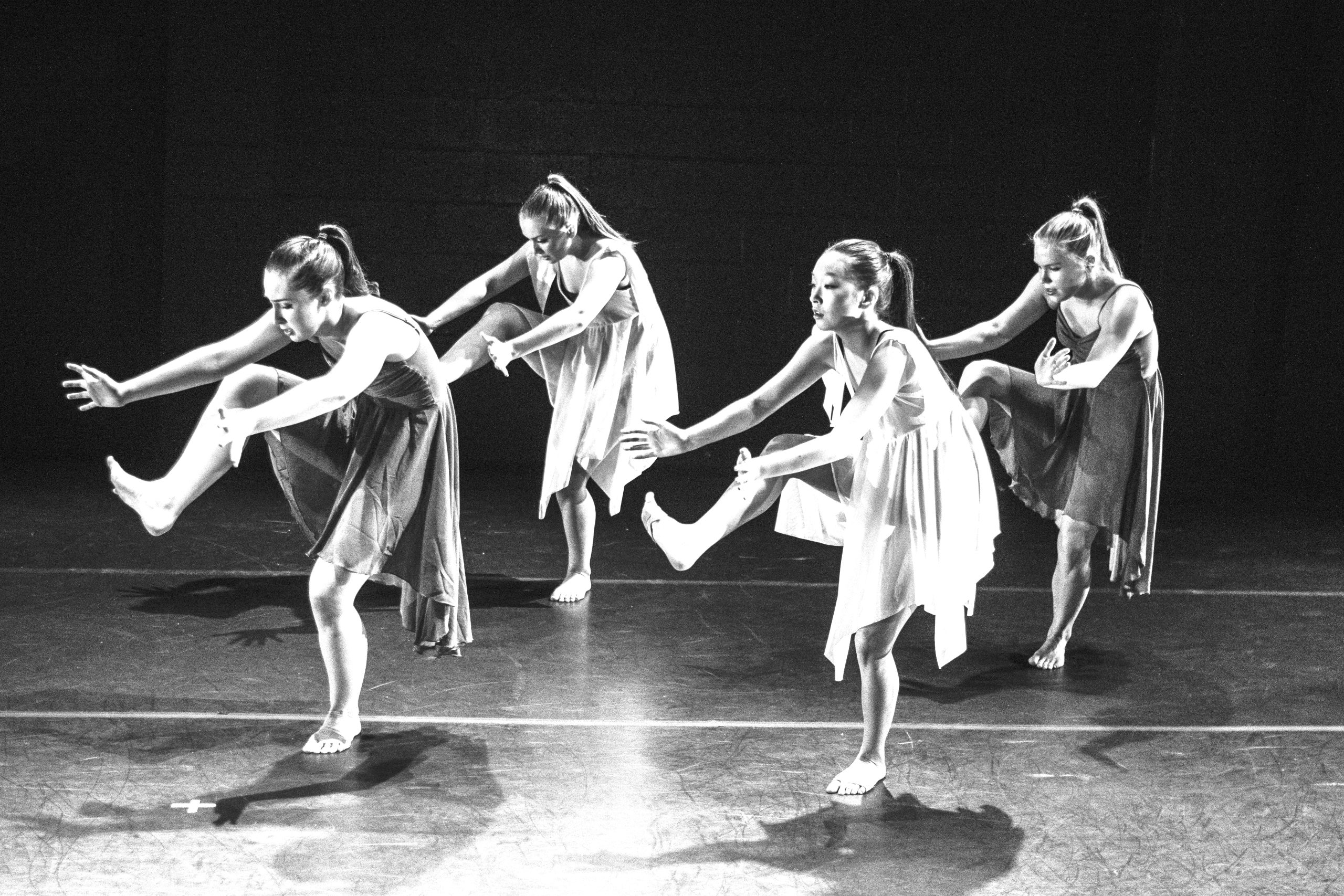Based on a talk given for the deVeber Institute’s annual lecture on November 8, 2018, in Toronto.
Are pro-life women feminists? Are feminists pro-woman? If not, can we play in the same sandbox? The term “feminism” means different things to different people, and it has different stages too—which is why the simple term “feminist” often doesn’t suffice in discussions of women’s happiness, health, feminism, and abortion.
Two stories to start: Two different circumstances, two different views, and two different women.
STORY 1:
A feminist man kicks a pro-life woman—and the public is disgusted.
We all know what happened to Marie-Claire Bissonnette. She was aggressively kicked for leading a peaceful anti-abortion demonstration in October 2018. 1 1 Jenny Yuen, “Woman Who Was Roundhouse Kicked at Anti-abortion Rally Speaks Out,” Toronto Sun, October 5, 2018, https://torontosun.com/news/local-news/woman-who-was-roundhouse-kicked-at-pro-life-rally-speaks-out. When this happened, the reaction was almost universally appropriate. Most people saw the terrible irony of this “defender of women’s rights,” a wiry and angry man, roundhouse kicking a petite woman, sending her phone flying. He lost his job and was arrested and charged. Most who heard of the incident rallied around the idea that everyone has the right to peaceful protest.
STORY 2:
A feminist woman shouts down a pro-life man—and the public cheers her on.
Jennifer Bundock, owner of a vegan pizza shop, yelled some pro-life protesters off the block back in July 2018. 2 2 Jonathan Forani, “Toronto Pizza Shop Owner Confronts Anti-abortion Protesters,” CTV News, July 27, 2018, https://www.ctvnews.ca/canada/toronto-pizza-shop-owner-confronts-anti-abortion-protesters-1.4031254. In this case, she was the victim. This was probably in part because the signs were graphic, where in the first case they were not. More importantly, it was a woman doing the yelling, largely, it appeared, at a man. Here, the woman was the hero—and the pro-lifers were decidedly not—if public consensus on the issue can be expressed in media-column inches.
Both Marie-Claire Bissonnette and Jennifer Bundock are the heroines and victims.
These are two images to hold in considering women’s happiness, women’s health, and the feminist fight against abortion.
There are a couple of limitations in this paper. One is discussing only the first wave versus the second wave of feminism, leaving the third and possibly fourth waves for another time. There’s also continuity between the waves as well, but here the focus is on the bright lines of division.
First, I will simply examine first- versus second-wave feminism, the distinctions and what they mean, and where being pro-life fits. I will not explore in detail here why the relationship between feminism and being pro-life might be strained.
Second, I will take a look at why being pro-life is a pro-woman stand, whether you call it feminist or not.
And finally, I will examine a path of reconciliation and expansion forward, which is possible, if hard fought. Part of this involves more pro-life people accepting all pro-lifers regardless of political or economic affiliation. The other part involves mainstream feminists accepting themselves and their own roots and history.
What is Feminism?
We use the term “feminism” quite flippantly and broadly today. What many mean by saying “I’m a feminist” is that women have the same dignity and worth as men and that women deserve the same access to opportunities. This might simply mean equality of opportunity. Some who call themselves feminist today are looking back to an era where women couldn’t sign for a loan, where women were dismissed from jobs for getting pregnant and sometimes for getting married—essentially where agency was denied women in critical ways.
If that is what “feminism” means then everyone is a feminist. Thus, being pro-life is irrelevant to whether you can be considered a feminist. In one poll conducted by Cardus with Angus Reid Forum for International Women’s Day 2017, we learned that nearly six in ten (57 percent) Canadian women believe it is possible to be pro-life and a feminist (five in ten men said the same). 3 3 “Celebrating Women—International Women’s Day,” Cardus, March 8, 2017, https://www.cardus.ca/news/events/celebrating-women-international-womens-day/. That’s encouraging; however, the term “feminism” wasn’t defined in the poll.
The reality is, not everyone is a feminist, and the proof lies in the fact that many feminists exclude women who would otherwise qualify. The editors of ProLife Feminism, Yesterday and Today put it this way: “Despite the usual ardour for recovering lost herstory, many contemporary pro-choice feminists have denied, minimized, or neglected feminism’s enduring pro-life strain.” 4 4 Mary Krane Derr, Rachel MacNair, and Linda Naranjo-Huebl, eds., ProLife Feminism, Yesterday and Today, 1st ed. (New York: Sulzburger & Graham, 1995), 17.
The same book notes, “The early feminists did celebrate motherhood as a uniquely female power and strength that deserved genuine reverence, while exposing the motherhood mystique as a cover-up for real-life degradations.” 5 5 Derr, MacNair, and Naranjo-Huebl, ProLife Feminism, 18.
First-wave feminists saw abortion as an injustice against both the woman and her child. “Men must no longer insult all womanhood by saying that freedom means the degradation of woman. Every woman knows that if she were free, she would never bear an unwished- for child, nor think of murdering one before its birth,” wrote free-love advocate and first woman U.S. presidential candidate, Victoria Woodhull in 1875. 6 6 Marilyn Kopp, “The Original Feminism Is Pro-Life,” Washington Examiner, January 19, 2018, https://www.washingtonexaminer.com/the-original-feminism-is-pro-life.
The radical feminist newspaper The Revolution, published by Susan B. Anthony and Elizabeth Cady Stanton, classified abortion as “child murder,” on the same level as infanticide, and saw it as a symptom of women’s oppression, not a solution to it. 7 7 Serrin M. Foster, “The Feminist Case Against Abortion,” Feminists for Life, https://www.feministsforlife.org/2013/07/serrin-foster/.
In 1869, Mattie Brinkerhoff, a first-wave feminist fighting for suffrage, wrote, “When a man steals to satisfy hunger, we may safely conclude that there is something wrong in society—so when a woman destroys the life of her unborn child, it is an evidence that either by education or circumstances she has been greatly wronged.” 8 8 Kopp, “Original Feminism Is Pro-Life.”
This traditional, classically liberal feminism of 150 years ago was very different from what we witness around us predominantly today.
The sexual revolution, which we can date in the most modern manifestation to roughly 1960, witnessed revolutionary changes across the family and sexual domain as in so many other areas of life.
Christina Hoff Sommers, author of Who Stole Feminism, writes this:
“The idea that women are in a gender war originated in the mid-sixties, when the antiwar and antigovernment mood revivified the women’s movement away from its enlightenment liberal philosophy to a more radical, anti-establishment philosophy. The decisive battles of the sexual revolution had been won, and students here and on the Continent were reading Herbert Marcuse, Karl Marx, Franz Fanon, and Jean-Paul Sartre and learning how to critique their culture and institutions in heady new ways. They began to see the university, the military, and the government as merely different parts of a defective status quo.” 9 9 Christina Hoff Sommers, Who Stole Feminism? How Women Have Betrayed Women, rev. ed. (New York: Simon & Schuster, 1995), 23.
Simone de Beauvoir, paving the way for the sixties, opened a chapter on motherhood in The Second Sex with a detailed look at how to end or prevent motherhood via an examination of abortion and contraception. 10 10 Simone de Beauvoir, The Second Sex, trans. Constance Borde and Sheila Malovany-Chevallier (New York: Vintage, 2011). She believed equality in difference results only in equalitarian segregation, or put differently, extreme discrimination. For de Beauvoir, the relationship between the sexes was a zero-sum game. Andrea Dworkin, writing in the eighties, viewed all sex as men using women, or put differently, as a form of rape.
Importantly, second-wave feminism tracks its roots to Marxism. The Essential Feminist Reader, published in 2007, includes a lengthy look at Friedrich Engels—who viewed marriage as subjugation and a struggle between the sexes. Engels wrote, “The first division of labor is that between man and woman for the propagation of children. And today I can add: The first class opposition that appears in history coincides with the development of the antagonism between man and woman in monogamous marriage, and the first class oppression coincides with that of the female sex by the male.” 11 11 Friedrich Engels, The Origin of Family, Private Property, and the State, in The Essential Feminist Reader, ed. Estelle Freedman (New York: Modern Library, 2007), 109.
There are many quotes one can take from the founders of the second wave, from Andrea Dworkin to Betty Friedan, which typify a combative approach between the sexes. Take Dworkin: “From father’s house to husband’s grave . . . a woman acquiesces to male authority in order to gain some protection from male violence.” 12 12 Andrea Dworkin, TarcherPerigee (New York: TarcherPerigee, 1983), 14, Simone de Beauvoir Women with men (as daughters or wives) are caught in a kind of Stockholm syndrome.
In this we can see that second-wave feminism today desires equality of outcome, not of opportunity. The endless attempts to ensure more young women enter engineering, maths, and sciences stems from the idea that gender is a construct and that men and women are so obviously alike that any difference in outcome must be due to discrimination.
The link to Marxism may be what allows second-wave feminists too readily to fall into the idea that all men are oppressors and all women are victims. Consider #BelieveWomen as a popular manifestation of this idea, with others advocating for the rule of law and concepts of innocent until proven guilty on the other side.
In a 1985 paper Queen’s University professor Karen Dubinsky identifies that in Canada it was “feminist theory that placed emphasis on reproductive control,” making this central to women’s liberation. 13 13 Karen Dubinsky, “Lament for a Patriarchy Lost? Anti-Feminism, Anti-Abortion, and R.E.A.L. Women in Canada,” Canadian Research Institute for the Advancement of Women, http://www.criaw-icref.ca/en/product/feminist-perspectives. Apparently even infamous abortion provider Henry Morgentaler didn’t approach abortion from a feminist perspective, but rather a humanist perspective.
For these feminists, “pro-choice” is an unwanted compromise and a far cry from abortion on demand. The campaign for access to abortion needed to link reproductive rights with other aspects of women’s oppression, both sexual and economic, Professor Dubinsky writes.
The picture second-wave feminists paint of male violence, of sex as rape, and of a zero-sum competitive game between the sexes, needless to say, is fundamentally at odds with how pro-life women view themselves, their relationships, or their cause. This is why, at least in part, there is no happy partnership between pro-lifers and modern feminists.
The result on the part of pro-lifers can be an overreaction to the socialism and gender warfare of second-wave feminism, where being pro-life is made into something synonymous with being (politically or economically otherwise) conservative.
One pro-life single mom of six makes the point that even though she is part of the right-to-life movement, she sometimes finds pro-lifers more fixated on the “right” than on “life.” 14 14 Gail-Grenier Sweet, Pro-Life Feminism: Different Voices (Toronto; Lewiston, NY: Life Cycle Books, 1985).
There should be room for a pro-life ethos among those who are not conservative, but we have to make space for these people who may think differently and simply share the value of life instead of compelling them to believe a host of other things. On the other hand, second-wave feminists need to make peace with the more liberal tendencies of their foremothers.
To summarize, second-wave feminism is in theory and practice hostile to being pro-life. First-wave feminism is not, yet there was also a diversity of views within first-wave feminism. This sheds light on why pro-life women might not choose or be able to call themselves feminists. This also invites us as pro-life women to rally around the sanctity-of-life principle—without working other issues into a bigger package of belief.
The Pro-Life Attitudes of First-Wave Feminists
What are the justifications for viewing first-wave feminists, dedicated to supporting life, as pro-woman? Today’s feminism would say they succumbed to the patriarchy. But they did not.
Women who are against abortion contend that it attempts to equalize men and women in a manner that is impossible, therefore undesirable. Beyond that, the practice of abortion conceals a particularly dangerous logic that leads to lethal outcomes for unborn women (and men)—in violation of human dignity.
Here is one inconsistency. We treasure racial differences, and we treasure national/cultural differences, but then we denigrate male-female differences, including reproductive capacity.
The fact that men cannot get pregnant and women can falls into the category of a difference to treasure, not an inequality to overcome.
This issue of equality is cast into sharp relief when we examine how abortion is often used. As reported in Complications: Abortion’s Impact on Women, the Nobel laureate Amartya Sen said there are over 100 million girls missing in Asia and North Africa because they were aborted. 15 15 Angela Lanfranchi, Ian Gentles, and Elizabeth Ring-Cassidy, Complications: Abortion’s Impact on Women, deVeber, 2018, https://www.deveber.org/complications/. Gender ratios are also skewed in countries outside this area.
In communities where son preference is the norm, it is imported via immigration into Canada. Moreover, a recent study revealed that son preference was being transmitted to children of immigrants born in Canada. 16 16 Wency Leung, “Study Suggests Prenatal Sex Selection for Boys Remains a Trend Among Some Canadians of South Asian Ancestry,” Globe and Mail, June 21, 2018, https://www.theglobeandmail.com/canada/article-study-suggests-prenatal-sex-selection-for-boys-remains-a-trend-among/.
It does not matter that we all share the desire to end discrimination against women; those who are pro-choice need to first recognize that “choice” has been abused. It’s a difficult task, something author Mara Hvistendahl writes about in her book Unnatural Selection: “After decades of fighting for a woman’s right to choose the outcome of her own pregnancy, it is difficult to turn around and point out that women are abusing that right—that in union with population pressures and technology, that choice has been perverted.” 17 17 Mara Hvistendahl, Unnatural Selection: Choosing Boys Over Girls, and the Consequences of a World Full of Men (New York: Public Affairs, 2012).
From Equality to Choice
There can be no talk about why being against abortion is in favour of women’s rights without addressing the nature of choice and what it means. One might say, “So you disagree with abortion, that’s fine—just don’t have one. But don’t tell others what to do.”
However, even if we think the abortion choice is morally neutral, it’s worth acknowledging that the presence of abortion as a choice harms even women who would not choose it, another reason why women have long fought against abortion.
Access to abortion and birth control has significantly altered the way we view women, women’s bodies, and the nature of pregnancy. An article in First Things from 2009 called “Her Choice, Her Problem” draws together this thought cohesively. The author, Richard Stith, writes that “sex no longer causes birth. Given the availability of elective abortion, sexual intercourse can only cause choice. It is choice that causes birth.” 18 18 Richard Stith, “Her Choice, Her Problem,” First Things, August 2009, https://www.firstthings.com/article/2009/08/her-choice-her-problem. That holds true for every single woman across the country, irrespective of whether she would make the choice.
Stith quotes radical feminist Catharine MacKinnon, who says, “Abortion facilitates women’s heterosexual availability.” She continues, “In other words, under conditions of gender inequality [abortion] does not liberate women; it frees male sexual aggression. The availability of abortion removes the one remaining legitimized reason that women have had for refusing sex besides the headache.” MacKinnon notes that this is perhaps why “the Playboy Foundation has supported abortion rights from day one.” 19 19 Stith, “Her Choice, Her Problem.”
Every woman, regardless of whether she supports abortion, is subject to the choice regime.
Women's Health
Certainly, many women who have abortions do not experience adverse health outcomes. But some do—and research as well as experience backs this reality up.
Sadly, due to the “abortion distortion”—where all discussion of abortion is subject to a good dose of politics and ideology—all this science remains hotly contested, though less so outside North America. 20 20 The “abortion distortion” is a term widely used and not easily attributable to one person. It refers to the distortion of science and facts, the silencing of research and/or results due to politics or ideology.
On negative psychological outcomes, the then-new American Psychological Association’s statement about abortion and mental health, which was so carefully worded—implied no mental health risks. Their statement said, “The best scientific evidence published indicates that among adult women who have an unplanned pregnancy the relative risk of mental health problems is no greater if they have a single elective first-trimester abortion than if they deliver that pregnancy.” 21 21 American Psychological Association Task Force on Mental Health and Abortion, “Mental Health and Abortion Task Force Report,” American Psychological Association, 2008, http://www.apa.org/pi/women/programs/abortion/index.aspx.
This actually leaves all kinds of room for negative mental health effects post-abortion, for younger people, for later term abortions, or for wanted pregnancies. 22 22 Andrea Mrozek, “Political Science, Part 2,” Institute of Marriage and Family Canada, January 2009.
Physical health effects are just as hotly contested. The book Complications goes into the detailed research on the link between abortion and breast cancer. Some might remark that this link is the result of a pro-life conspiracy, but the pro-choice director of the documentary Hush also goes after the issue. 23 23 Hush, documentary film, dir. Punam Kumar Gill, 2015, http://hushfilm.com/. She too gives a comprehensive explanation of why there is a distinct possibility of a link and shows herself getting thrown out of the National Cancer Institute. Regardless of what research shows, it’s not a good sign for freedom of information or expression when a polite, smart documentary maker is persona non grata simply for asking questions.
Importantly, pending health risks now or later will never deter a woman determined to get an abortion. All too often, with many decisions, the choice we make may feel risky, but we still feel the good outweighs the bad.
No, the bigger problem here is that abortion lives on in public consciousness as the one medical procedure that is completely without risks, for political and ideological reasons. Thus informed consent becomes an issue. One former crisis pregnancy worker tasked with surveying crisis pregnancy centres doing post-abortion counselling found out that nine out of ten clients surveyed said they were ill-informed of the risks. Women almost never hear about any possible negative ramifications of abortion, so informed consent is almost always missing.
A pro-life peace psychologist from the United States, Rachel MacNair—dare I say, a pro-life feminist— says this about health and abortion: “Surgery done on a healthy body is mutilation, and such surgery done without adequately informed consent is a battery.” 24 24 Derr, MacNair, and Naranjo-Huebl, ProLife Feminism, 307. Equality, choice, and health are all important aspects of why being pro-life is a pro-woman stand. Another is children.
Why is abortion controversial? Why do we care? It’s because the life of a child is at stake. In my reading of feminist literature, this is something second-wave feminists almost always brush over. The child is both abstraction and distraction. It’s on children that the second wave really falls down.
Embryology textbooks say life begins at conception, but women don’t need a textbook to tell them this. This business of a clump of cells doesn’t fly with women; if faced with an unplanned pregnancy, if scared or alone or worried about it—we all know why. Because a child is developing and it is this child we are, so we believe, not ready for.
Many second-wave feminists will simply avoid any discussion about when life begins, claiming it to be unknowable, or a religious question, and therefore private, rather than a scientific one. The first panel I ever participated in about abortion was many moons ago, and I sat next to a woman who worked for Planned Parenthood. She fully ignored my remarks about how a new genetic code is present at conception, a beating heart at six weeks, and so on.
The tone throughout the pro-choice book Women Against Abortion published in 2017 both offers justifications for late-term abortions (“they are rare,” “they are only for severe fetal anomaly” etc.) and dismisses them. 25 25 Karissa Haugeberg, Women Against Abortion: Inside the Largest Moral Reform Movement of the Twentieth Century (Urbana: University of Illinois Press, 2017). Others will say things like denying any abortion, early or late term, means women are not being trusted—that women aren’t smart enough or loving enough to make decisions about their own families.
At some point pro-choice feminists became concerned about the fact that the notion of a child was growing in public consciousness. Shelley Gavigan of Osgoode Hall Law School spoke to this fear at a conference at the University of Toronto in 2008 when she acknowledged the “dominant ideology” of the unborn child. “If you must acknowledge the discourse of the unborn child,” she told the largely pro-choice crowd, “if we must reinsert the vernacular of the unborn into the discourse, [then the] pregnant woman and the unborn child speak with one voice and that voice is hers.” 26 26 Andrea Mrozek, “Thank You, Camille Paglia,” National Post, September 23, 2008, https://www.imfcanada.org/archive/370/thank-you-camille-paglia.
A child becomes an “ideology” or a “discourse” to some pro-choice feminists, but it is absolutely not that to most women. This is something first-wave feminists understood.
Building the Future
We can and are building a pro-life women’s future. In part, we can reference the strength of the feminist movement’s (first-wave) past. There are women out there fighting against abortion who adopt the feminist label, and those who do not.
There are:
- Feminists for Life, obviously, speaking as feminists;
- Helen Alvare, Women Speak for Themselves;
- Susan B. Anthony List;
- Rehumanize International—a group dedicated to ending all violence, including abortion and euthanasia, as well as things like police brutality and human trafficking;
- New Wave Feminists—the group that was first accepted and then rejected from the women’s marches;
- Advocates for a “consistent life ethic”; and
- Lia Mills, who is establishing herself as a voice for a pro-life feminism.
More often than not, women pro-lifers are creating a rallying cry around the far more inclusive value of life, not around feminism. They are putting aside the desire to see agreement on a host of other issues and homing in on the life file exclusively.
Frederica Matthewes-Green was a free-love hippie feminist—but changed, and became a pro-life activist. She didn’t give up on her desire to support women, but rather she evolved to view it in a different way, as many women have.
Erika Bachiochi, an attorney and the author of an article in the Harvard Journal of Law & Public Policy, says this: “Abortion expects nothing more of men, nothing more of medicine, and nothing more of society at large. Abortion betrays women by having us believe that we must become like men—that is, not pregnant—to achieve parity with them, professionally, socially, educationally. And if we are poor, overwhelmed or abandoned by the child’s father, or if medical expenses would be too great for us or for our child, social ‘responsibility’ requires us to rid ourselves of our own offspring.” 27 27 Erika Bachiochi, “Opinion: It’s Feminist to Be Anti-abortion,” CNN, January 22, 2015, https://www.cnn.com/2015/01/22/opinion/bachiochi-abortion-roe-v-wade/index.html.
Let’s return to Marie-Claire Bissonnette, roundhouse kicked by a wiry man, and Jennifer Bundock, who shouted some pro-lifers off the street. But what is Bundock shouting? An abridged version follows: “Do you hand out free condoms? You don’t want people to get pregnant but you’re not handing out condoms? Are you funding daycares? How many children have you adopted? Are you supporting women of colour in poor neighbourhoods who can’t afford to raise any children? School breakfast clubs? How much of that have you funded? Do you preach anything but abstinence? Do you support the existing sexual health curriculum at school? No you don’t. You’re just here to make people feel bad about something that was the worst decision of their life because they were so f ’ing tired. They can’t f ’ing deal with it. You’re not sorry. . . . You wouldn’t be standing here making people feel like shit for making a hard decision that you will never have to make.”
To reiterate: She is saying abortion is the worst decision of a woman’s life—and she correctly identifies it as the worst decision a man doesn’t have to make. This is not a great endorsement for the second wave. A movement of empowerment and strength cannot stem from support for one of the worst decisions one can need to make.
her worldview is one where you can run a vegan restaurant, veganism being a philosophy that espouses non-violence toward all living animals such that they should never be consumed for food— and still advocate for a woman’s right to end life in the womb.
When we consider Marie-Claire Bissonnette getting kicked, we can of course ask whether this is an anomaly—simply a weirdo who has anger issues. Or is this actually an apt symbol of a movement that has justified violence as a means to an end? The hope is that the public reaction is also indicative of something—that people will recognize that the violence is not justified—and this too includes the inherent dignity of the human person, including the unborn.
To conclude, the question is not whether pro-lifers can be feminist. Of course they can and are, but of the first-wave variety. The question is whether pro-lifers can welcome any pro-lifer regardless of ideology, and the bigger question is whether the second wave can embrace the first wave—their own history. When they do, the feminist world will get a lot more reasonable, inclusive, and a whole lot larger. Until then, what we can say for certain is that there are many countless, strong, and tireless women who have and will continue to fight against abortion on the basis that it harms women. That they are excluded from modern political discourse on the topic, or from the second wave writ large, hardly even seems relevant.

